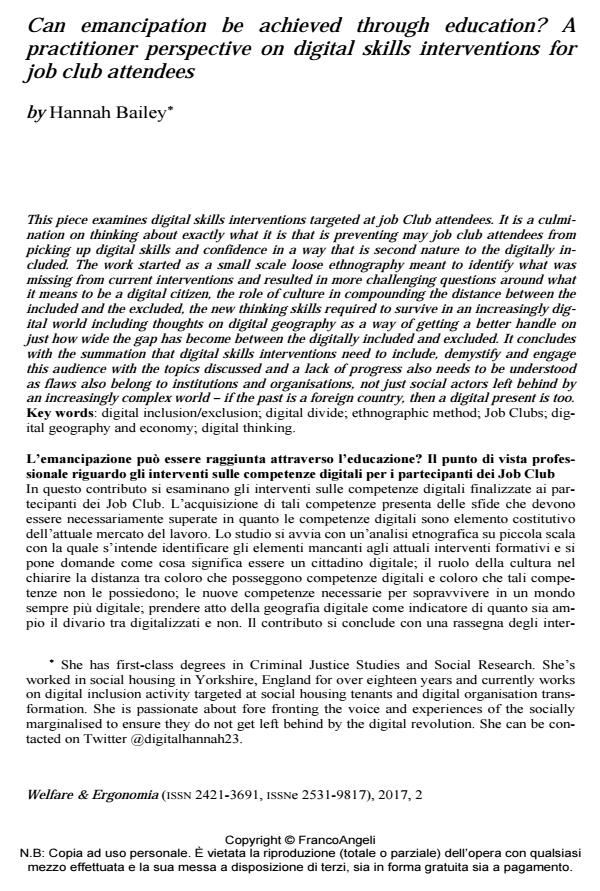L’emancipazione può essere raggiunta attraverso l’educazione? Il punto di vista professionale riguardo gli interventi sulle competenze digitali per i partecipanti dei Job Club
Journal title WELFARE E ERGONOMIA
Author/s Hannah Bailey
Publishing Year 2019 Issue 2017/2
Language English Pages 11 P. 51-61 File size 184 KB
DOI 10.3280/WE2017-002003
DOI is like a bar code for intellectual property: to have more infomation
click here
Below, you can see the article first page
If you want to buy this article in PDF format, you can do it, following the instructions to buy download credits

FrancoAngeli is member of Publishers International Linking Association, Inc (PILA), a not-for-profit association which run the CrossRef service enabling links to and from online scholarly content.
This piece examines digital skills interventions targeted at job Club attendees. It is a culmi-nation on thinking about exactly what it is that is preventing may job club attendees from picking up digital skills and confidence in a way that is second nature to the digitally included. The work started as a small scale loose ethnography meant to identify what was missing from current interventions and resulted in more challenging questions around what it means to be a digital citizen, the role of culture in compounding the distance between the included and the excluded, the new thinking skills required to survive in an increasingly digital world including thoughts on digital geography as a way of getting a better handle on just how wide the gap has become between the digitally included and excluded. It concludes with the summation that digital skills interventions need to include, demystify and engage this audience with the topics discussed and a lack of progress also needs to be understood as flaws also belong to institutions and organisations, not just social actors left behind by an increasingly complex world – if the past is a foreign country, then a digital present is too.
Keywords: Digital inclusion/exclusion; digital divide; ethnographic method; Job Clubs; digital geography and economy; digital thinking
Hannah Bailey, Can emancipation be achieved through education? A practitioner perspective on digital skills interventions for job club attendees in "WELFARE E ERGONOMIA" 2/2017, pp 51-61, DOI: 10.3280/WE2017-002003